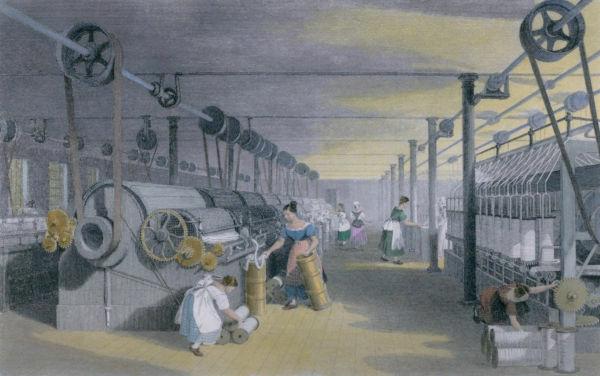With the advent of the Industrial Revolution in the 18th century, progressive and intense social, political and economic transformations took place. Industrialization had brought with it urbanization, changes in the mode of production and tense relationships between the bourgeoisie, owners of the means of production and workers, who sold their labor power to the survival.
The industries replaced artisanal production by mechanics, thus providing a significant increase in the daily production of goods. These advances enriched the capitalists (the wealthy bourgeoisie), but the workers were excluded from this enrichment.
In fact, the living conditions of the workers were precarious: they lived in neighborhoods far from the central regions of the cities, their homes they were unhealthy, built on dark, unpaved streets, poorly ventilated, lacking water and in poor condition. Sanitary.
The industries, like the workers' houses, also did not provide good working conditions, they were generally hot and humid, with little ventilation. The food served to the workers in the factories was insufficient and of poor quality, poor in nutrients.
Another factor that has intensified, more and more, the relations between capitalists and workers was the endless working day. Each worker worked up to eighteen hours a day. Along with the appalling working conditions, the life expectancy of the workers was low, also due to the incidence of illnesses and accidents at work.
Do not stop now... There's more after the advertising ;)
Thus, capitalists preferred to hire women and children, in order to avoid further problems related to demonstrations and workers' revolts, which claimed better conditions for work.
With the increase of industrial machines in factories, the labor force was quickly replaced, generating thousands of unemployed. Shortly thereafter, the workers reacted with the movement of breaking machines: in the year 1811, many workers invaded the factories at night and smashed the machines with hammer blows.
For these workers, machines became the main responsible for the situation of exploitation and unemployment in which they found themselves. Machine-breaking workers became known as luddists, name that derives from Ned Ludd, a character, considered by many as legendary, who would have broken the machine in which he operated with hammer blows, thus showing his dissatisfaction. Quickly, ludism spread from England to other European countries.
Therefore, ludism was constituted as the first workers' movement to demand improvements in working relations and conditions.
Leandro Carvalho
Master in History
Would you like to reference this text in a school or academic work? Look:
OAK, Leandro. "Ludism"; Brazil School. Available in: https://brasilescola.uol.com.br/historiag/ludismo.htm. Accessed on June 27, 2021.
General history

Labor movement, Industrial Revolution, Capitalism, Chartist movement, the conditions of the first workers, popular revolts, Feargus O'Connor, William Lovett, People's Charter, English Parliament, social movements for Europe.


